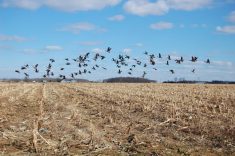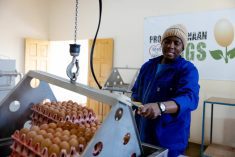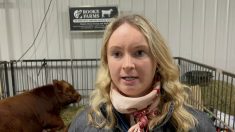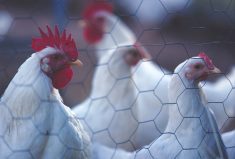Mark Ronald became an egg farmer almost in an instant.
Mark was 18, and like most newly graduated students, was considering his career path. He’d worked on the family farm near Portage la Prairie since he was a teen but was also thinking about going into the trades or maybe the Canadian Armed Forces.
In November of 2015, Mark went to a prayer meeting at his church. An egg farmer named Randy told him about the Manitoba Egg Farmers’ new-entrant quota lottery. The deadline was at the end of the week.
Read Also

Mazergroup’s Bob Mazer dies
Mazergroup’s Bob Mazer, who helped grow his family’s company into a string of farm equipment dealerships and the main dealer for New Holland machinery in Saskatchewan and Manitoba, died July 6 from cancer.
“Yeah, yeah, Randy,” Mark said he responded. “Why in the world would I want to have chickens? Like, seriously.”
By the next day, Mark had reconsidered. He toured Randy’s egg farm and found himself interested enough to at least enter the draw. A week later, Mark was working on his car in the shop and heard the phone ring.
He’d been drawn.
“People always ask me, ‘Oh did you always want to do this all your life?’ and I was like, ‘You know, I thought about it for three days and I put my name in and a week later they called me that they pulled my name,’” Mark said. “So I thought about it for about 10 days and that was it.”
Mark grew up, the third generation on a grain and oilseed farm. His dad had tried raising cattle and hadn’t liked it, so by the time Mark was working on the farm they had no livestock.
“I knew nothing about chickens,” said Mark, now 22. At 18 he’d been handed a quota for 6,000 chickens and was expected to be in production by the end of next year. Mark said he didn’t know who built barns or who provided the housing for the birds.

Through a hog and poultry show in Brandon, he found builders. Randy’s serviceman contacted him about getting a flock and feed. By January, his farm company was official — on paper.
They broke ground for the barn once the soil warmed up, and almost a year to the day after he was drawn, Mark’s first flock was housed inside his new barn.
“And then it’s just like wow, what do I do now?” Mark said. “So you start at the basics. We’ve got feed, we’ve got water, oxygen and light. So we’ve got the basics covered.
“It was a bit of a shock,” he said.
Mark figured it took him one full flock cycle — just under a year — to feel like he was really an egg farmer. By now, he’s no longer the new guy at producer meetings.
Work-life balance is also slowly getting better.
The first year “there was a lot of work balance and not a lot of life balance,” Mark said.
He was used to crop farming and having time in the winter to take time off. With chickens, he’s always on call. The eggs need to be collected. Someone has to do walkthroughs twice a day. If the feeding chain mechanism or a fan goes down, he has to drop everything.
He also still works on the family farm alongside his dad and sister.
Mark said he’s found flexibility in the routine to maintain a social life, and he’s learned to say no to work every now and again.
“There’s challenges with it, but I don’t regret that it happened,” Mark said of his lottery ‘win.’ He said he dreams of having a family and farming with them just like he was raised.
“I can say with the way it came about… this is where God put me,” Mark said. “Some things are clear in life and that was one.”




















